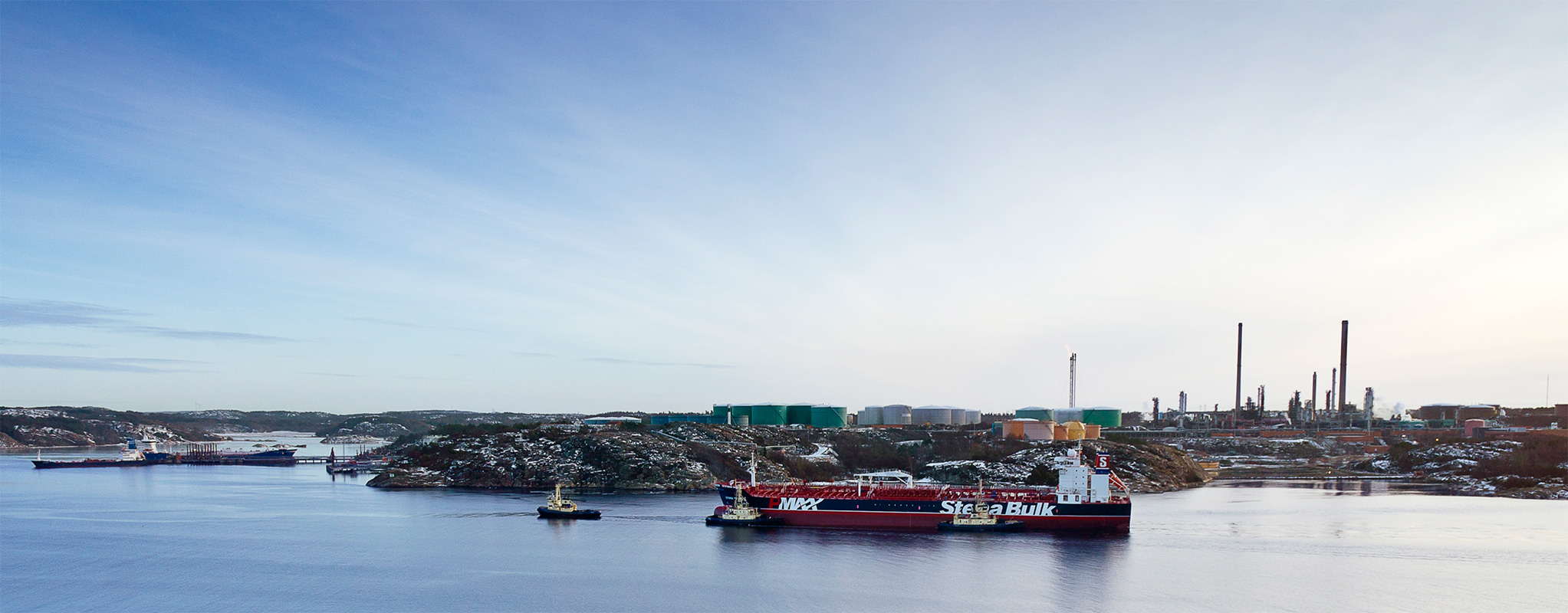Sustainability Policy for Concordia Maritime AB (publ)
This sustainability policy was adopted by the Board of Concordia Maritime AB on 15 December 2015. It was last revised on 29 April 2020.
Purpose of the Sustainability Policy
The purpose of this sustainability policy is to describe what sustainability means to Concordia and what responsibility we and our partners have towards the communities in which we operate. The policy is a complement to Concordia Maritime’s Code of Conduct, which is about who we are and how we conduct activities to meet our responsibility.
Concordia Maritime’s approach to sustainability
For Concordia Maritime, care and respect for people and the environment go hand in hand with safety, quality and transport efficiency issues. Both customers and employees, as well as society in general, benefit from safe transport, optimised logistics and fuel-efficient vessels.
Our sustainability work is aimed at creating long-term profitability for the company. This is achieved by integrating sustainability issues into our business processes and customer relationships as far as possible.
For us at Concordia Maritime, sustainability means:
- Conducting tanker transportation as safely as possible. Protection of the marine environment is of the utmost importance, second only to the safety of people. Through Stena Teknik, we have access to world-leading expertise in ship development and construction. Every day, with Northern Marine Group, we perform systematic safety and maintenance work on board all our vessels in order to minimise the risk of damage to people, property and the environment. Showing care for our employees by providing a safe and secure workplace comes naturally to us, and it also creates business advantages, such as fewer operational interruptions.
- Conducting tanker transportation as efficiently as possible. In cooperation with Stena Teknik and Stena Bulk, we work continuously to optimise the vessels’ fuel efficiency through ship design, development of measures for existing vessels and efficient commercial operation. This is partly about optimisation of logistics and cargo, and partly about voyage by voyage operational control and monitoring of each vessel's voyage economy.
- Ensuring financial development that enables us to invest in our continuing development. In this way, we can create value for shareholders, employees, customers and society – in the short and long term.
- We offer our shore-based and seagoing employees competitive, fair conditions, including opportunities for skills development and social benefits. All employees on board our vessels are covered by ITF agreements.
- We respect internationally recognised human rights and ensure that we do not in any way contribute to human rights abuses through our operations.
- We have zero tolerance for bribery and corruption. We strive to eliminate facilitation payments.
- Sustainability aspects are part of the decision support material for transactions and settlements with customers and partners. Aspects concerning the impact on safety and the environment must be included as part of the support material for future investments, customer relationships or partnerships. For individual investments, any additional costs must in each case be balanced against the estimated value-enhancing effect in the short and/or long term.
Management and monitoring of sustainability work
The CEO of Concordia Maritime is responsible for coordinating and driving the company's sustainability work on an overall level and reporting regularly to the Board about developments. Sustainability work is always dealt with as a separate agenda item at each ordinary Board meeting.
A large proportion of Concordia Maritime's daily operational work is purchased from cooperation partners, mainly in the Stena Sphere. Consequently, our sustainability work is to a large extent reflected in the work carried out in our partners’ operations.
All our partners have well developed systems and procedures for regular monitoring, reporting and further development of sustainability work. For example, our partners provide us with current deviation reports and weekly updates on vetting. Together with representatives of our partners, we conduct quarterly monitoring of work on safety, environmental and employee issues.
Gothenburg, 15 December 2015
Board of Directors, Concordia Maritime AB

